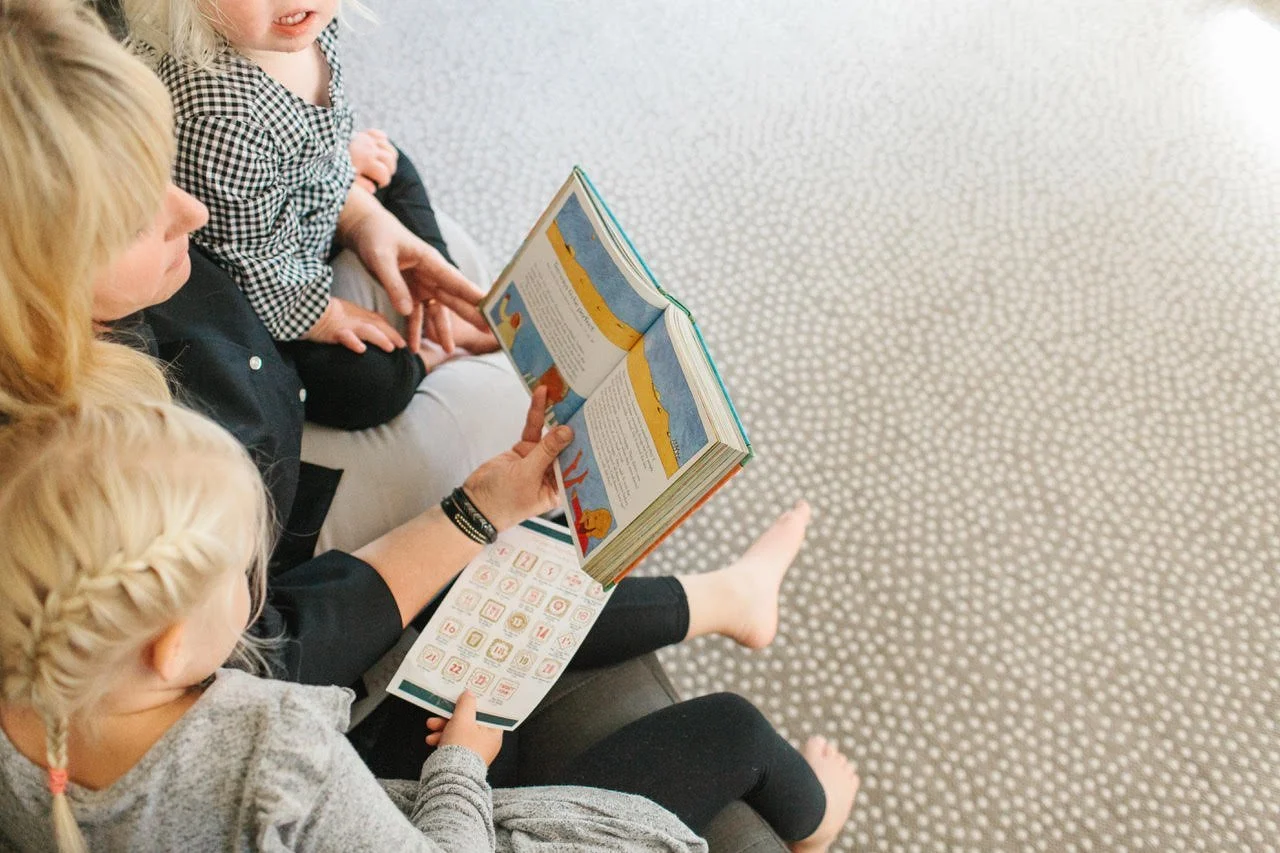How Do I Talk to My Kids About Their Fears?
We drove up to the car wash, but from the sounds in the backseat, we might as well have been subjecting our two-year-old daughter to the dentist or, worse yet, a horror movie. Sheer terror was on her face and within her trembling voice.
“I can wash the car tomorrow by myself,” I said to my husband.
“No,” he said. “She needs to know that this is okay. She’s safe with us.”
After the scream-filled, tear-laden incident ended, all was well. My husband and I may still laugh about it, but a simple car wash gave us an opportunity to talk to our daughter about something we had yet to see her express: fear.
A Foundation for Fighting Fear
What is fear? We can distinguish between two kinds: natural fear and sinful fear.[1] Natural fear is a protective response to our fallen world with its dangers and threats. Sinful fear is a response to people and circumstances rooted in unbelief––or a lack of faith in God’s trustworthiness––that often leads to other sins (such as disobedience, worry, and doubt).
God created us (and our kids) to worship him with reverence and awe––to fear him––but sin corrupted our hearts and has therefore distorted our worship and our fears.[2] Now, instead of fearing God as we ought, we fear anything and everything else he has made.
Our problem––and our kids’ problem––with fear isn’t that we’re too afraid, but that we aren’t afraid enough of the God who is worthy to be feared. In other words, we need to help them see who God is through his word and, in doing so, help them increasingly put fear in its place, in light of his character and promises.[3]
I say “increasingly” because fighting fear isn’t a one-time act but a continual practice.[4] Thinking of this as a process will encourage us when we feel defeated by our own returning fears and when our kids’ fears don’t disappear overnight. We fight fear by making strides in the battle. We fight, as King David did, by putting our trust, again and again, in the Lord: “When I am afraid, I put my trust in you” (Ps. 56:3).
A Framework for Talking About Fear
These two cornerstones––that we fight fear with the fear of the Lord, and that this fight is a continual process––lay a firm foundation upon which we can build useful, compassionate, Christ-centered conversations with our kids about their fears. So, where can we start?
We prepare.
Like all other aspects of parenting, we can’t give what we haven’t received.[5] Our first aim is to know and love and fear Jesus. So, daily, we confess our dependence upon him by seeking him through his word and prayer. We learn of God’s character, we search his promises, we treasure his commands, and we celebrate his saving grace. We pray for hearts that fear him,[6] and we ask for wisdom as we prepare to talk to our kids.[7]
We set proper expectations.
We consider our child’s age, personality, and needs. Can he or she sustain a 15-minute conversation, or should we expect 30 seconds? Would it be smart to table a conversation until the morning? Would our spouse be the better person to address our child’s fear? I imagine that how we talked to our toddler about the car wash will look different than your conversation with your 6-year-old or teenager. Wisdom considers every kid and sets proper expectations within each season.[8]
We help our child articulate and discern their fear.
The human heart is a confusing, deceitful place.[9] Sometimes, we don’t know exactly what we’re afraid of (or why) until we talk about it. So, we can serve our kids by asking questions about their fears: What are you imagining will happen if ___? Has ___ ever happened before? Did something happen to make you afraid of ___?[10]
Once we help them articulate their fear, we can discern if it’s a natural or sinful one, and if it’s true or untrue. For example, if a child’s fear is, “The car wash will hurt me,” we can discern that this is a natural reaction to a loud, scary environment, but that it’s also rooted in untruth.[11] We can affirm their fear while telling them what is real: the car wash may be loud, but they are safe! If their fear seems to be rooted in sinful unbelief (“I’m afraid of what other kids will think of me”), we have a wonderful opportunity to help our child discern the root of their fear, practically address what requires our intervention, and ultimately point them to Christ.
We point our child to Christ.
The good news about Jesus directly applies to our fears: The eternal Son faced and overcame the greatest of all fears––the just wrath of God––so we would never have to, and so we would never be alone in anything fearful.[12] We can address our child’s fears with the living and active word: What about God’s character might we encourage them to trust? Which of his promises apply to their natural or sinful fear?[13] Our aim is to direct their hearts to fear the Lord, which will give perspective to their other fears.
We pray with them.
We finish our conversation by praying with our child. We reaffirm the truths we just talked about by praising God for the gift of his Son, and for his trustworthy character and promises, and we ask him to make his word take root in their hearts by his Spirit. Then, we let our child know we’re always around to talk and pray with them when they’re afraid.
Unite Their Hearts to Fear You, Lord
Above all else, we want our kids to trust Christ––to know him, love him, treasure him, and fear him. We want them to have new hearts that worship him, something only God, by his Spirit, can give. So we pray for our children (and ourselves), “Lord, unite [our] hearts to fear your name” (Ps. 86:11). We ask God to do what only he can, and we give ourselves as tools for his work––even talking to our kids about their fears.
[1] I learned about these two terms in John Flavel’s book Triumphing Over Sinful Fear.
[2] Genesis 2 and 3
[3] Proverbs 9:10
[4] See 1 Timothy 6:12 and 2 Timothy 4:7. The Christian life is a fight to the finish.
[5] John 15:4
[6] Psalm 86:11
[7] James 1:5
[8] Proverbs 15:23
[9] Jeremiah 17:9
[10] Proverbs 20:5
[11] Philippians 4:8
[12] Romans 3:23-25; Romans 5:9
[13] Hebrews 4:12










